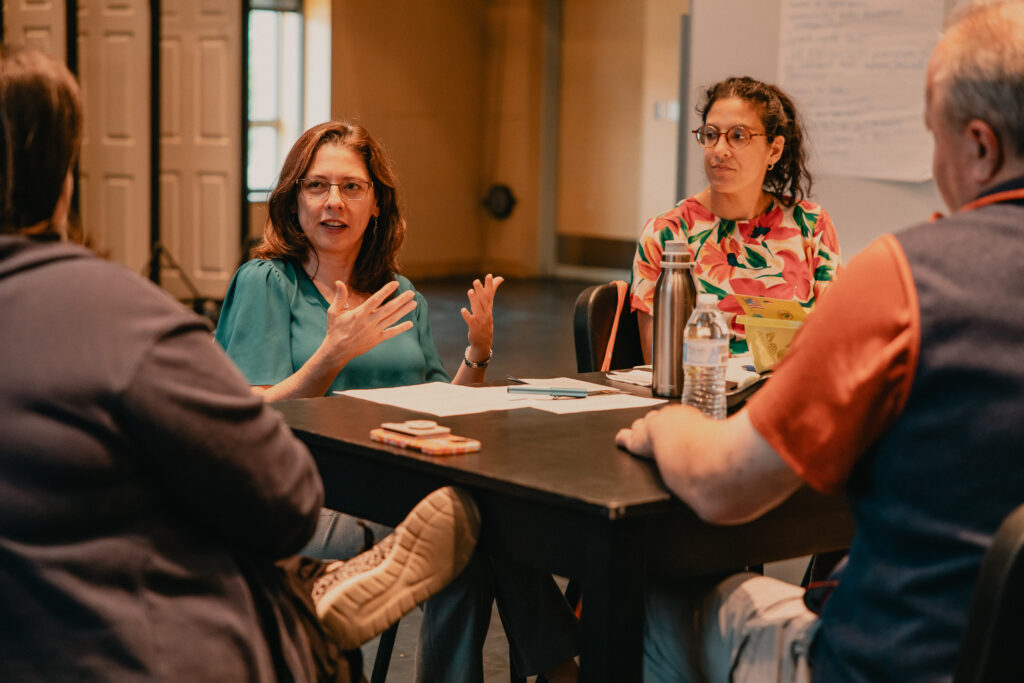 What is the Center for Social Justice Dialogue?
What is the Center for Social Justice Dialogue?
The Center for Social Justice Dialogue transforms education and interrupts systems of oppression by engaging campus community members in developing the knowledge, awareness and skills necessary to build bridges across difference toward a more loving and just world. Research affirms that relationships across differences are key for building empathy, cultural humility, and belonging on campuses, and we believe that dialogue provides the skills, practices, and behaviors that lead to more loving and compassionate campuses.
The Center opened its doors in 2024 to expand campus dialogue engagement for faculty, staff, and students grounded in intergroup dialogue theory, social justice education, and interdisciplinary critical education frameworks. In particular, the Center aims to engage in decolonized practices and uses circle pedagogy and shared power approaches to invite campus community members into deep curiosity and exploration. As part of this approach, the Center aims to engage community members as circle-builders, individuals who can widen the circle of belonging to invite more of us to be part of the community together.
Through facilitated dialogues, facilitation training, course engagement, training opportunities, and immersive experiences, campus community members deepen their understanding of themselves, others, and the world in the context of systems of power, privilege and oppression. As a result of engagement, campus community members are empowered to radically imagine a more just world, while exploring shared responsibility and actions that create the world we all deserve.
The Center considers dialogue as not only a practice, but a way of being. Beyond facilitated dialogues and structured engagement opportunities, the Center draws on intergroup dialogue theory to explore skills, practices, and behaviors, or Competencies for Dialogic Community Building that engage dialogue practices on a daily basis toward inclusive excellence and a sense of belonging for all at UMBC.
Competencies for Dialogic Community Building
-
Critical self reflection – wondering about self;
-
Cultural storytelling – telling your story and practicing vulnerability;
-
Generous Listening – wondering about others and practicing empathy; and
-
Loving Accountability – engaging self-accountability, shared responsibility and shared learning.